 Petzlover
Petzlover Dalmatian is originated from Croatia but Maltipoo is originated from United States. Dalmatian may grow 26 cm / 11 inches higher than Maltipoo. Dalmatian may weigh 26 kg / 58 pounds more than Maltipoo. Both Dalmatian and Maltipoo has same life span. Dalmatian may have more litter size than Maltipoo. Dalmatian requires Low Maintenance. But Maltipoo requires Moderate Maintenance
Dalmatian is originated from Croatia but Maltipoo is originated from United States. Dalmatian may grow 26 cm / 11 inches higher than Maltipoo. Dalmatian may weigh 26 kg / 58 pounds more than Maltipoo. Both Dalmatian and Maltipoo has same life span. Dalmatian may have more litter size than Maltipoo. Dalmatian requires Low Maintenance. But Maltipoo requires Moderate Maintenance
 The history of the Dalmatian dog is also fairly scant, and the information you get is often unclear.
The history of the Dalmatian dog is also fairly scant, and the information you get is often unclear.
The name Dalmatian wasn’t used until the end of the 18th century, although it seems as though, according to murals on ancient tombs, there were white hounds then with specks over the body.
It does seem firm that the modern Dalmatian is because of breeding of the English nobility. They used these dogs to accompany them on their carriages. The dogs were also bred with the purpose of getting an exquisite spotted pattern.
It was in 1890 that the first Dalmatian Club was established in England and the dog was recognized by the American Kennel Club in 1888.
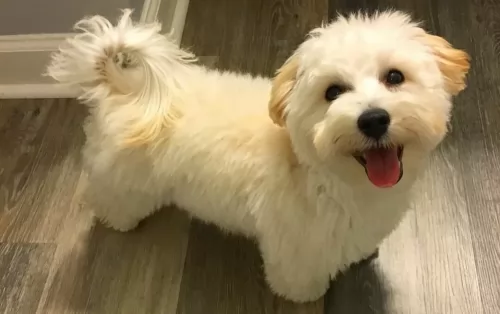 The Maltipoo is a popular dog breed – a cross between the Maltese and Poodle. The dog originates in the United States.
The Maltipoo is a popular dog breed – a cross between the Maltese and Poodle. The dog originates in the United States.
The Maltipoo is a cross breed but it is often referred to as a designer dog because of it being purposely bred. The cute little dog has been created to be a companion dog, suiting allergy sufferers because of him being a low shedder and considered hypoallergenic.
The Maltipoo isn’t officially recognized as a true breed. Some Maltipoo Clubs and Registries have been formed.
 The Dalmatian is a medium sized dog with its beautiful white coat with black or liver spots being its main feature. The coat is short and dense and the Dalmatian pretty much sheds all year round.
The Dalmatian is a medium sized dog with its beautiful white coat with black or liver spots being its main feature. The coat is short and dense and the Dalmatian pretty much sheds all year round.
It is notable that at birth, the puppies are pure white, with their spots starting to form about 4 weeks later.
Both the male and female stand at anything between 56–61cm in height and weigh between 22 to 35kg. He is a slender, muscular dogs with plenty of stamina. The ears of the dog are floppy, he has brown eyes and a long tail.
With his human family, the Dalmatian is an active, playful dog. He has the reputation of being somewhat unfriendly and aloof, but many who have kept him as a pet say this isn't so. He loves to take part in games and gets on well with children in the home.
He is intelligent, but when it comes to strangers, the Dalmatian is reserved and even aloof. If you want to get the best from your Dalmatian, make sure that he is trained and socialized as he then knows how to behave well around people. He makes a good watchdog too.
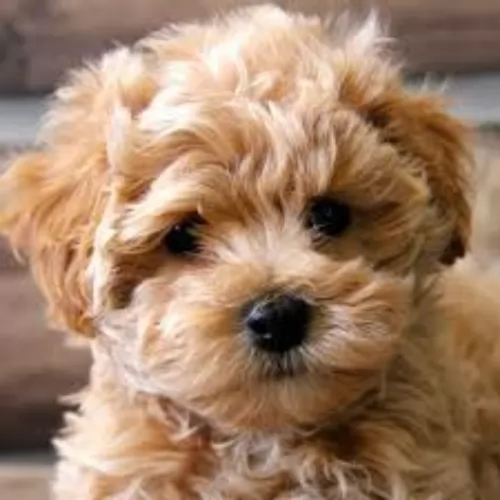 The small Maltipoo stands at between 20 and 35cm and weighs about 2 to 6kg. There is no breed standard for this dog. The coat is fluffy and is more inclined to be wavy than curly. It can become quite long and most people prefer to have him professionally clipped.
The small Maltipoo stands at between 20 and 35cm and weighs about 2 to 6kg. There is no breed standard for this dog. The coat is fluffy and is more inclined to be wavy than curly. It can become quite long and most people prefer to have him professionally clipped.
Coat colors vary from white to cream, apricot and brown or it can be a combination of these colors. He has a tail which some people prefer to dock, but if not, the tail is long and curls, sometimes over the back.
Owning a Maltipoo, you’ll quickly discover that this little dog is active, feisty, bright and, fun-loving, and your life is pretty much not going to have a dull moment with him in it.
If you’re a first time dog owner you’ll love the Maltipoo as he is pretty much easy going. He makes an excellent family pet as he is even tempered. Make sure your kids have been taught how to treat him – with respect, gentleness and kindness. Never allow toddlers to climb over any dog – big or small.
The Maltipoo is intelligent too and this means training and socialization will be easy for him. Many people use them as therapy dogs and they definitely seem to have an affinity with older people, bringing joy into their lives with their bright nature.
They are dogs that can adapt to life in the city or the countryside, just so long as they are with their beloved human family. They’re essentially indoor dogs but will gladly venture outdoors if it means ball games on the lawn with the children or a walk outside the confines of his home. This gives him the opportunity to smell new aromas, a physically and mentally stimulating game for him.
 The Dalmatian is such a beautiful dog, energetic and playful and he is good with pets and children in the home.
The Dalmatian is such a beautiful dog, energetic and playful and he is good with pets and children in the home.
He is intelligent too and training and socialization for him will be easy and promise to bring out all his good points.
The Dalmatian became popular in the 1800's when they were used as coach-dogs, and their popularity has been enhanced because of films from Hollywood such as ‘101 Dalmatians’.
Unfortunately many people receive Dalmatian puppies as gifts after seeing movies like this and then hand their dogs into rescue centers when they grow up and are no longer the cute little puppy they first met.
Be a responsible dog owner. A Dalmatian has feelings and you need to commit to caring for him for up to 15 years. You’ll be rewarded by having a wonderful, loyal canine friend.
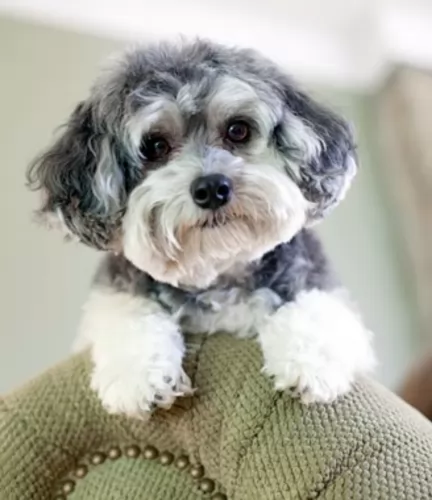 Your Maltipoo is guaranteed to bring much joy into your home. He is a social dog, loving to spend time with his human family, whether indoors our outdoors. He is an active dog so will look forward to his walk every day.
Your Maltipoo is guaranteed to bring much joy into your home. He is a social dog, loving to spend time with his human family, whether indoors our outdoors. He is an active dog so will look forward to his walk every day.
Treat your little pet with love and good care, after all he has got so much companionship to offer and deserves the best there is to that the 12 to 15 years he has are filled with health and happiness.
 Dalmatians, with good care, can live to be about 10 to 15 years. However, just as with other breeds, the Dalmatian is prone to certain health problems that are more specific to their breed. Some of these problems are skin allergies, deafness and urinary stones.
Dalmatians, with good care, can live to be about 10 to 15 years. However, just as with other breeds, the Dalmatian is prone to certain health problems that are more specific to their breed. Some of these problems are skin allergies, deafness and urinary stones.
Dalmatians are known to have sensitive skin and they are prone to topical allergies. When you brush your dog, you should check his skin for redness and also check for fleas and ticks.
Red bumps on his skin could mean an allergy and can be distressing for your pet. Your pet may be scratching excessively and the skin may be red and moist with runny, itchy eyes. It is time to get your dog to the vet, who may prescribe an antihistamines to get the itching and allergies under control.
Unfortunately, the Dalmatian is a dog which has a tendency to form stones in the kidneys and bladder. A genetic mutation causes the raised uric acid levels which is more prevalent with the male Dalmatian. Straining to urinate can be tremendously stressful for your dog and you will need to get him to the vet immediately.
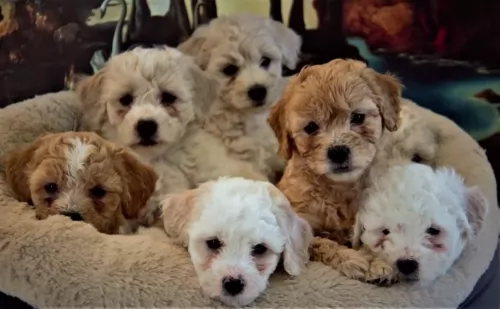 The Maltipoo is such a bright little dog, brimming with energy, but even so, he can get sick, just like with any other dog.
The Maltipoo is such a bright little dog, brimming with energy, but even so, he can get sick, just like with any other dog.
Small dogs are prone to dental problems and gum disease and tartar build up can cause many problems and tooth loss. Any dental infections can lead to infections which can put the entire body in jeopardy.
This is a degenerative eye disorder that can cause blindness and although there is no cure there are things that the vet can do for your pet.
 The Dalmatian is an easy dog to maintain and brushing twice a week will get rid of loose hairs. What is notable with the Dalmatian is that not only does he look like a well groomed dog, he also doesn’t have that typical dog smell around him.
The Dalmatian is an easy dog to maintain and brushing twice a week will get rid of loose hairs. What is notable with the Dalmatian is that not only does he look like a well groomed dog, he also doesn’t have that typical dog smell around him.
No matter what kind of dog you have, a high-quality dog food is always beneficial for your dog’s health. Home-made food is always good for your dog and wholesome food such as brown rice, vegetables and some cooked chicken will delight your pet and keep him interested in his food.
There are also excellent manufactured foods and kibble is a good food to have when you select it according to your dog’s age and energy levels.
These foods, especially the top quality ones, ensure your pet gets all the nutrients he needs. Adding some raw meat into the diet can be highly beneficial for your pet and will keep him bright eyed, bushy tailed and with a wet nose.
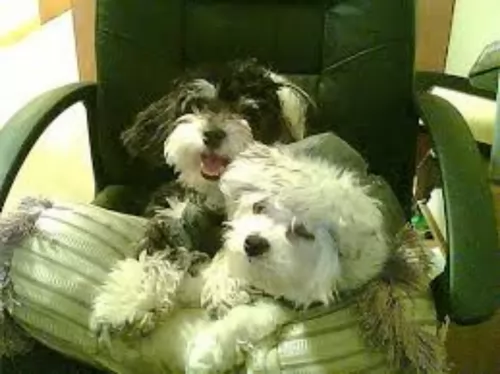 The Maltipoo is such a sweet little dog – you want to be sure that you look after him as well as can be.
The Maltipoo is such a sweet little dog – you want to be sure that you look after him as well as can be.
Always take your pet for regular veterinary check-ups if you suspect he is ill. If you get a Maltipoo puppy you will need to take him to the vet because there are a number of vaccines he will need to prevent him from picking up some life threatening canine diseases. Some of these are parvo and rabies among others.
Also, as your Maltipoo reaches adulthood you will need to decide whether you will have the dog spayed or neutered to prevent puppies.
Groom your Maltipoo to keep the coat in tip top condition. Brush him at least twice a week to keep him free of loose hairs. It’s a nice bonding session for your pet too and it gives you the chance to check for fleas and ticks. Most Maltipoo owners take their pets to professional groomers to have the coat trimmed as then he looks and feels more comfortable in warmer weather.
Be careful about bathing him too often as even the mildest shampoos can irritate his skin and it strips the coat of natural oils. Other grooming needs will require you keeping his nails short and cleaning his teeth at least 2 or 3 times a week. Because he has floppy ears, check inside them as they can collect excess wax and debris.
If you are unsure about these kinds of grooming needs, check with your vet or groomer because doing it wrong could cause injury to your pet.
Give your pet a soft, warm, dry bed to sleep in. You can make a soft ‘nest’ on the floor or you can buy a sleeping platform or traditional dog basket.
With a Maltipoo, choose a high-quality small breed dog food if you are going to feed him commercially manufactured food. This is to ensure he remains healthy. Try and keep your diet simple for your Maltipoo to avoid stomach problems.
For variety, add in some chopped boiled chicken, brown rice and vegetables to his dry kibble. The amount of food you give him will depend on his size and activity levels but you want to avoid feeding him too much so that it leads to obesity. Obesity can bring on a host of dog illnesses.
As opposed to one larger bowl of food, rather feed him two smaller meals which is far healthier for him. Remember to always have a bowl of fresh, cool water standing close by.